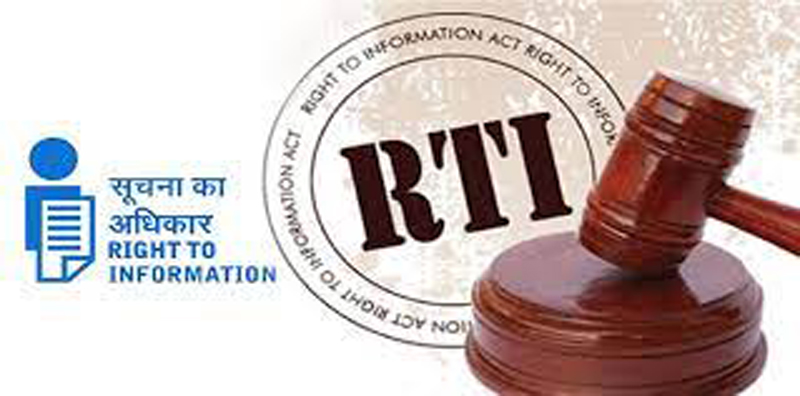Meaningful participation of citizens is true form of democracy. Checks and balances implemented through our constitution are exemplary and RTI is one of them. RTI replaced the Freedom of Information Act-2002 and earlier ‘Official Secrets Act 1923’, a British era law. Implemented on October 12, 2005 and on same day first RTI was filed in Pune Police station and since then lakhs of RTI have been filed. Methodology is simple, a Public Information Officer(PIO) and Assistant Public Information (APIO) is appointed in every office who are answerable to public queries within 30 days and any further delay a penalty of Rs 250/day with a maximum of twenty five thousand rupees gets imposed. Provision of two appeals is there, first one with officer senior to PIO as appointed by department who has to dispose of appeal again in 30 days citing details to justify how decision was concluded. If the activist is still not satisfied he/she can make second appeal with SIC. Idea behind RTI is empowering public against corruption, wrong doings or administrative failures to uphold justice, after all in democracy even Government is answerable to ordinary citizens, as such it becomes mandatory to provide necessary information in the shape of documents. But seventeen years since its inception with lakhs of pending RTIs and appeals, RTI has lost the game changer effect it created in its initial years. A look into pendency of cases with PIOs and CIC it appears it may take decades to clear the backlog in some states/UT. A detailed analysis of the pendency reveals around 40% of RTIs could be avoided by merely on phone call information provision. Only 45% receive the information they sought and of the 55 percent who don’t receive information only 10% filed appeals. Though the RTIs have increased every year but PIOs haven’t increased accordingly. Practically since PIOs are same departmental persons only whose first priority is loyalty to his department as such concealing or totally denying the information.
RTI has not come into existence in few days but after years of consistent struggle starting as early as 1990 in various states to get information regarding Government spending on roads, ration distribution or medicines used in hospitals. It has been successful in exposing grand and mass corruption cutting through red tapism and prevarication of bureaucrats. In one stroke system became transparent to some extent. It is shocking that so many cases are happening in Jammu and Kashmir where PIOs have simply refused to comply by RTI Act and provide information, least bothered about penalty imposed. More serious is the issue of no reply/non appearance/non compliance even before CIC. Just like thousands of contempt proceedings passed by Jammu Kashmir and Ladakh High Court or orders of CAT Tribunal or CIC directives, attitude of officers is to brazen it out, practically wheel of transparency gets punctured. Laws have to be implemented at any cost and any deviation or attempt to create hurdles must be dealt with imminent ramifications. No reply or non representation by so many officers cannot be taken lightly by administration. More serious is the fact that so many officers of Rural Development Departments, Roads and Buildings or Municipalities are offenders, all being the core departments for development with numerous complaints of serious bungling. BDOs or Executive Engineers or even CEO of Municipality being responsible posts require call for duty attitude instead of not concerned attitude. Government must find a wayout to raise the cost of defiance by the PIOs and the cost should be an exemplary one, a deterrent for future culprits.
Trending Now
E-Paper


